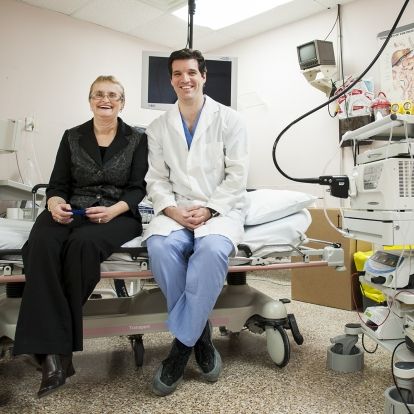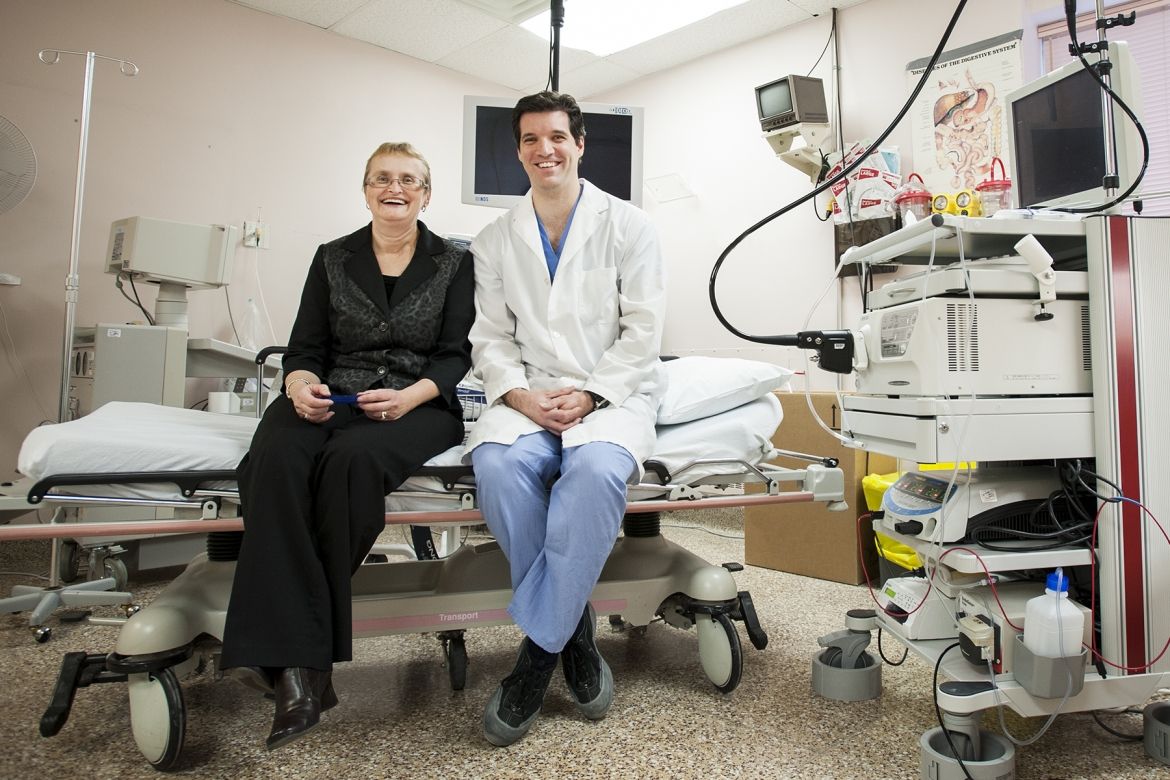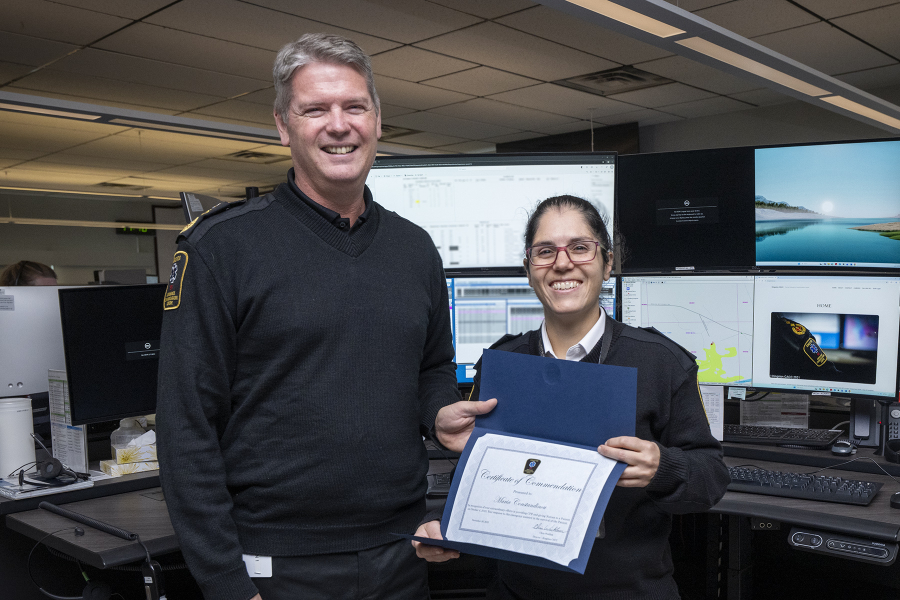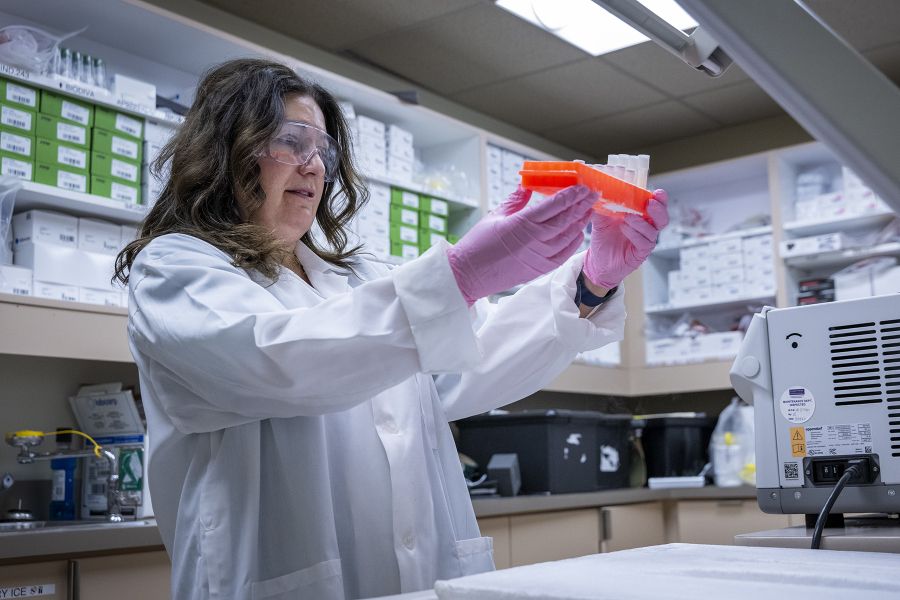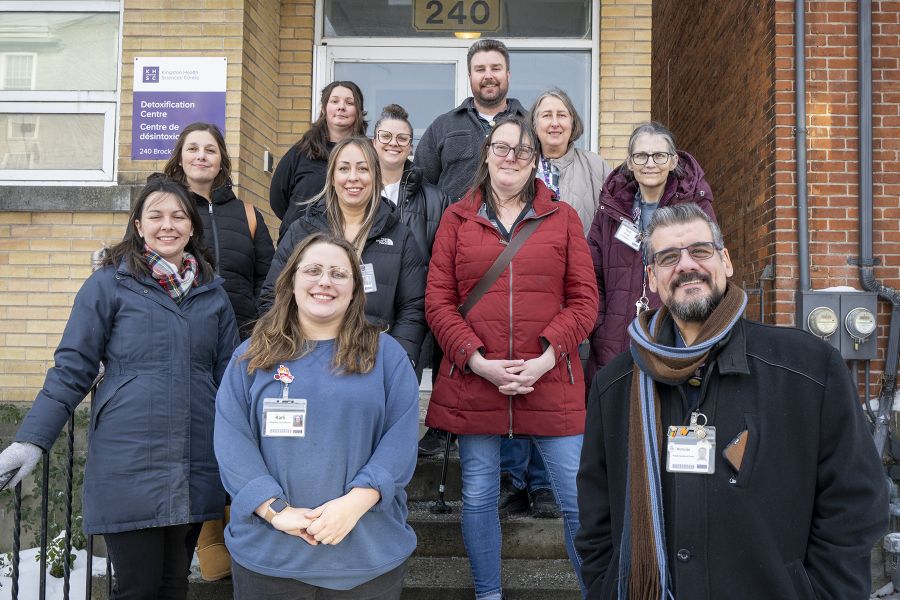Effective immediately masking is required for everyone when present on all inpatient units, in the Emergency Department (ED), the Urgent Care Centre (UCC), and the Children’s Outpatient Centre (COPC).
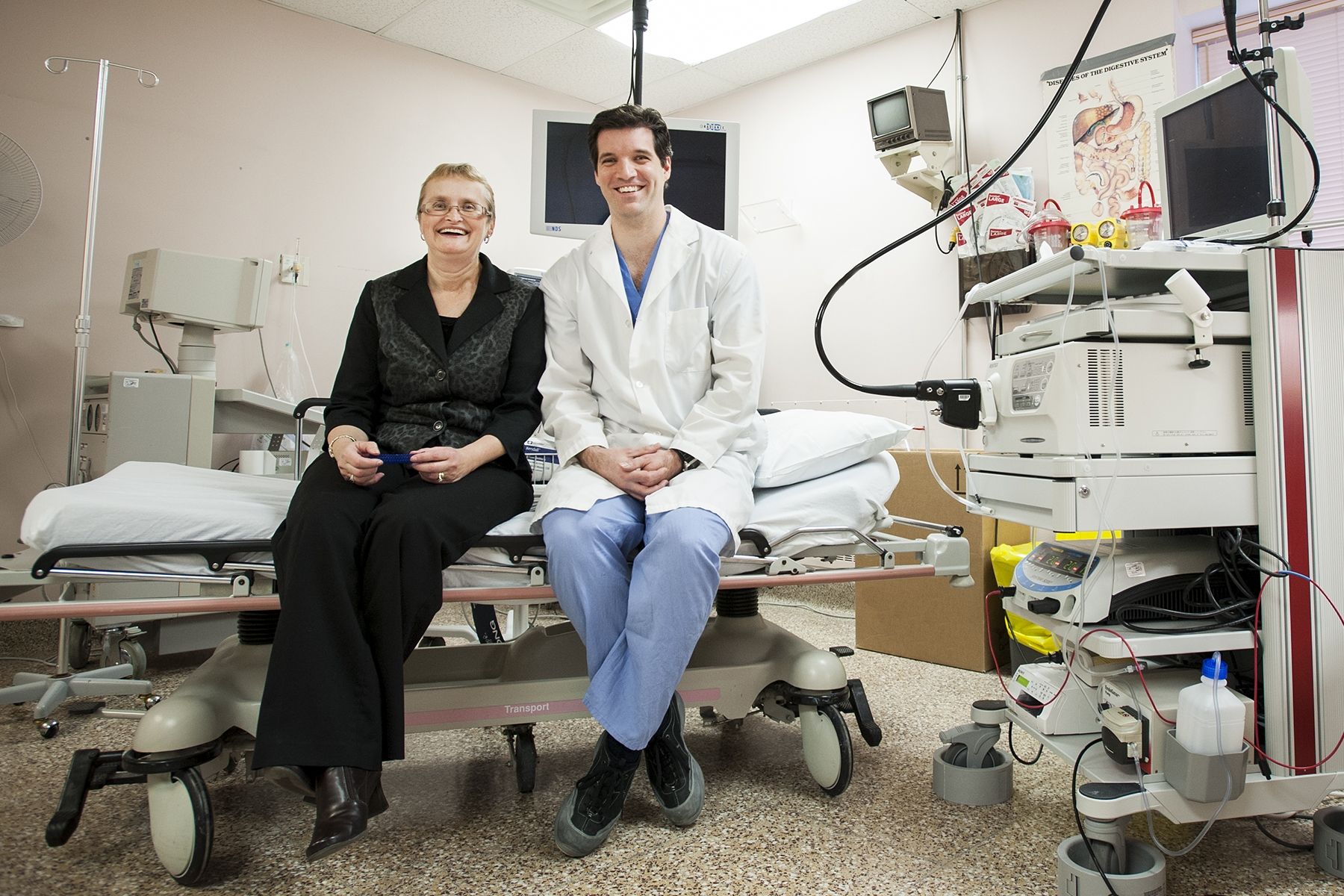
The Endoscopy team at Kingston General Hospital (KGH) has successfully performed the first endoscopic procedure in North America using a biodegradable esophageal stent. Esophageal stents are used to improve the quality of life for patients who find it difficult, if not near impossible to swallow due to benign esophageal strictures – otherwise known as a non-cancerous narrowing of the esophagus.
Dr. Lawrence Hookey, Medical Director of the Endoscopy Unit at Hotel Dieu Hospital and Kingston General Hospital who performed the procedure at KGH on a 54-year-old patient says that the device is a revolutionary tool that could dramatically improve the lives of a small patient population that requires repeated and frequent stretching of the esophagus, in some cases for life.
“This is a huge step. No other biodegradable stent is being used in Gastrointestinal medicine in North America,” says Hookey, who also serves as an Associate Professor and Program Director of the Gastroenterology Training Program at Queen's University in Kingston. “I'm pleased that my patient now has the ability to swallow on her own for longer durations between procedures. This could mean an overall better quality of life, less frequent trips to the hospital for endoscopies and a potentially lower cost to the health-care system.”
The biodegradable stent is an uncovered mesh tube that holds open the narrowing of the esophagus so that patients can swallow food and liquids. Unlike the conventionally used ‘fully covered mesh metal stent' which has a covering to help ensure that it can be easily removed between endoscopies – but can also slip down into the stomach – the biodegradable device resists slipping out of place. It also breaks down naturally in the body so that it doesn't need to be removed. This means that the patient could go longer between procedures and may experience fewer complications.
A better quality of life
Kim McCabe has had more than 500 surgeries to help alleviate the constriction of her esophagus that was destroyed by caustic ingestion when she accidently drank lye at the age of 22 months. After completing 125 endoscopies on McCabe since becoming her physician in 2008 and with the patient unable to eat solid foods, Hookey and McCabe were anxious to find an alternative. “I was nervous going into this procedure but this was something new and it gave me hope,” says McCabe. “That hope was simple. To be able to eat. Christmas dinner is something I haven't had in quite some time.”
The stent placed in McCabe is currently available only in Europe. It was acquired on a special-access basis approved by Health Canada.
-30-
Dr. Hookey and patient Kim McCabe are available for interviews.
To arrange an interview, contact:
Jennifer Evans
Communications Specialist
KGH Communication & Public Affairs
613-549-6666 x 3565 613-531-2324 (cell)
ABOUT KGH
Kingston General Hospital is a community of people dedicated to transforming the patient and family experience through innovative and collaborative approaches to care, knowledge and leadership. As southeastern Ontario's leading centre for complex-acute and specialty care, and home to the Cancer Centre of Southeastern Ontario, KGH serves almost 500,000 people through its Kingston facility and 24 regional affiliate and satellite sites. Fully affiliated with Queen's University, KGH is a research and teaching hospital which is home to 2,400 health-care students and 175 health researchers. KGH was ranked in 2011 as one of Canada's Top 40 Research Hospitals by Research Infosource. To learn more, visit www.kgh.on.ca or join the conversation at www.kghconnect.ca

